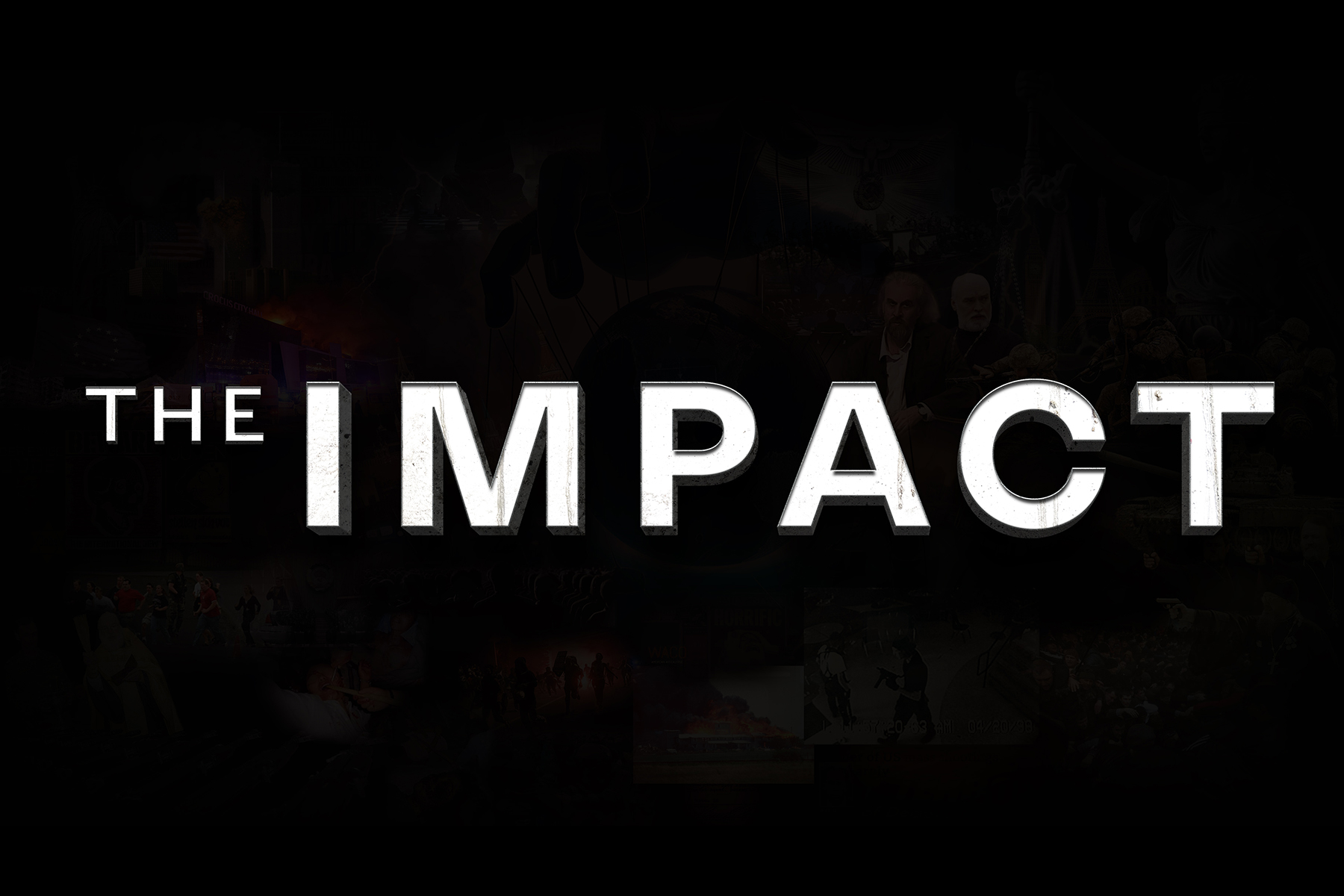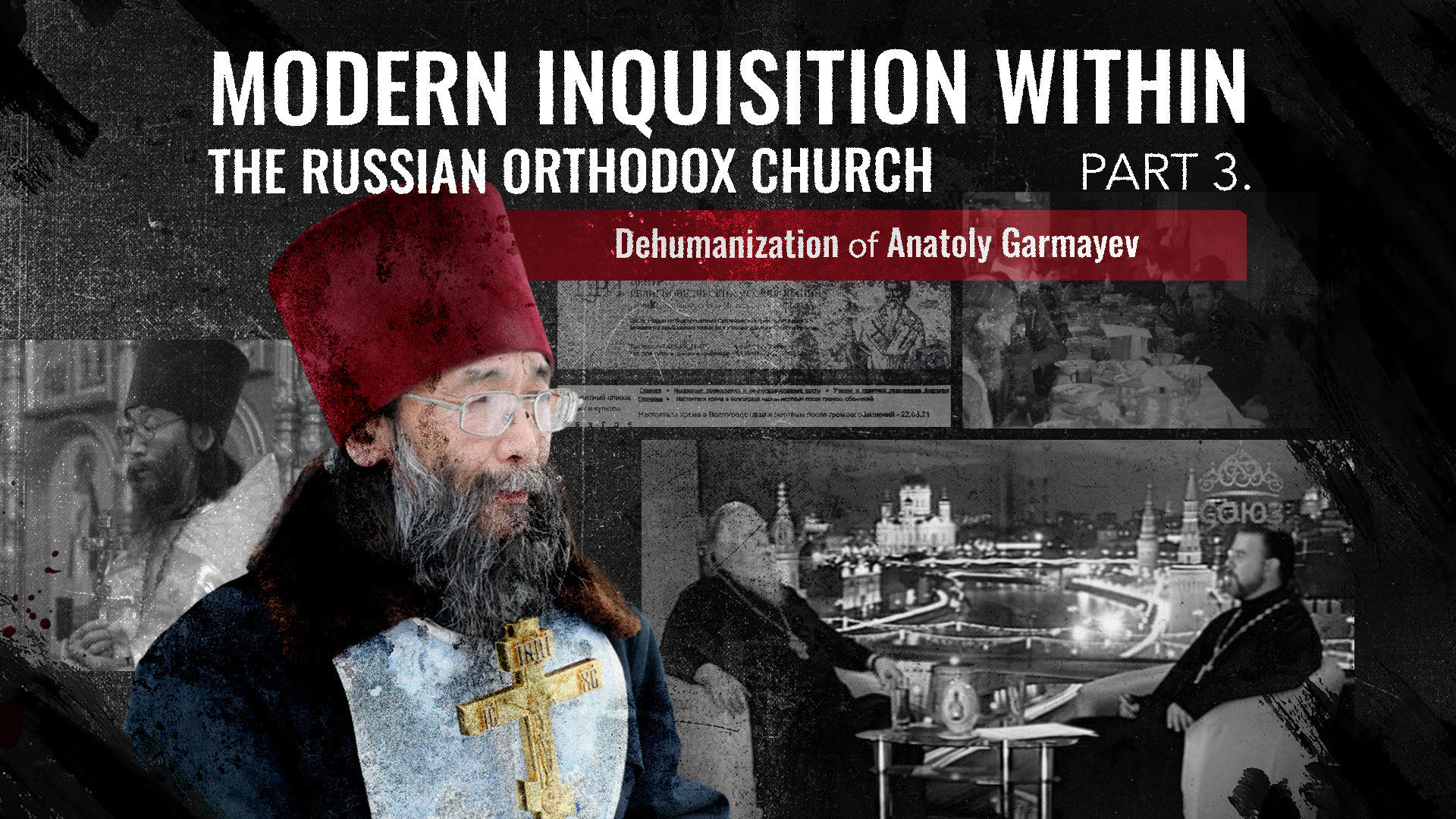We continue the topic of the Russian anticult influence in Latvia. You can read the first part here.
The Latvian Committee for Combating the Totalitarian Sects “Antisect” (Latvijas Totalitāro sektu apkarošanas komiteja) was registered in 2007, a year after the establishment of RACIRS. Information about this can be found on the official website of the Russian Orthodox Church. Although RACIRS does not list Antisect as a cult information center on the iriney.ru map, we are convinced that this committee unofficially aligned with RACIRS and adhered to its unified ideological policy.
Suffice it to say that Antisect was affiliated with the Russian Orthodox Church (the Moscow Patriarchate) 1 in the Baltic states, was an associate member of FECRIS 2, and, like others, used the same methods to actively fuel anticult hysteria in Latvian society. Further analysis only strengthens our conviction that RACIRS agents still continue their extremist activities in Latvia, expanding their influence in the Baltic region.
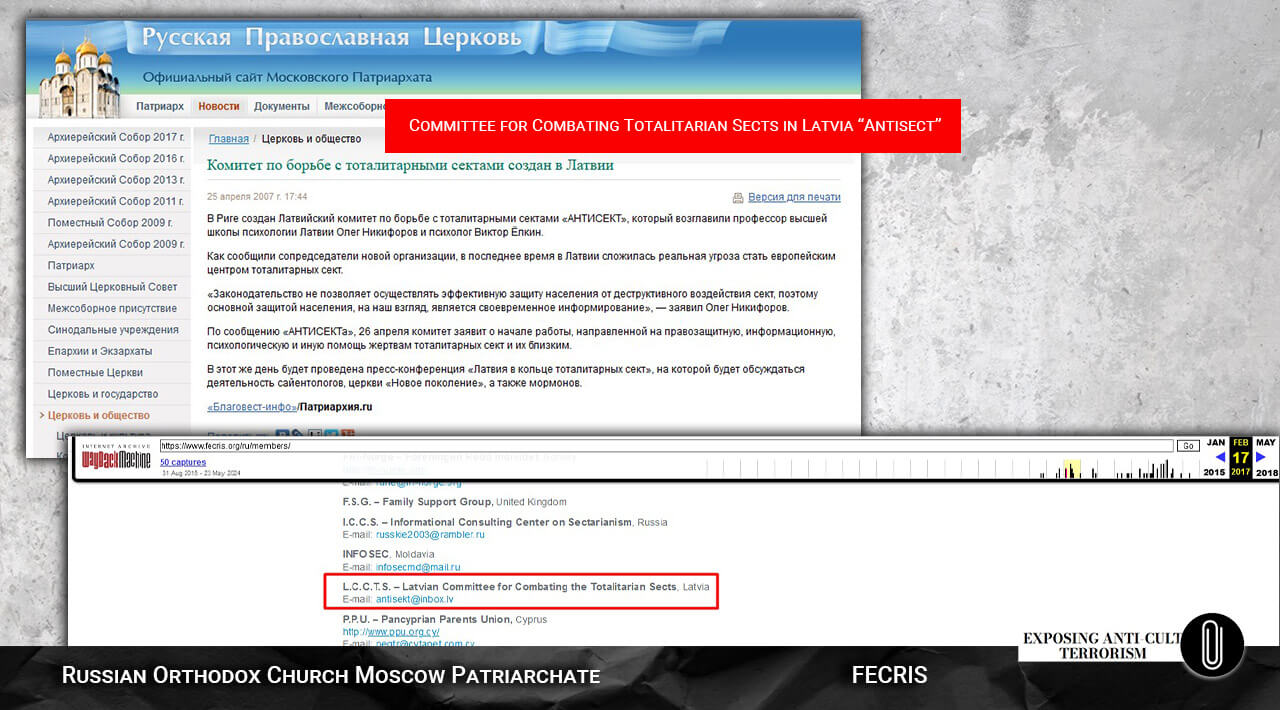
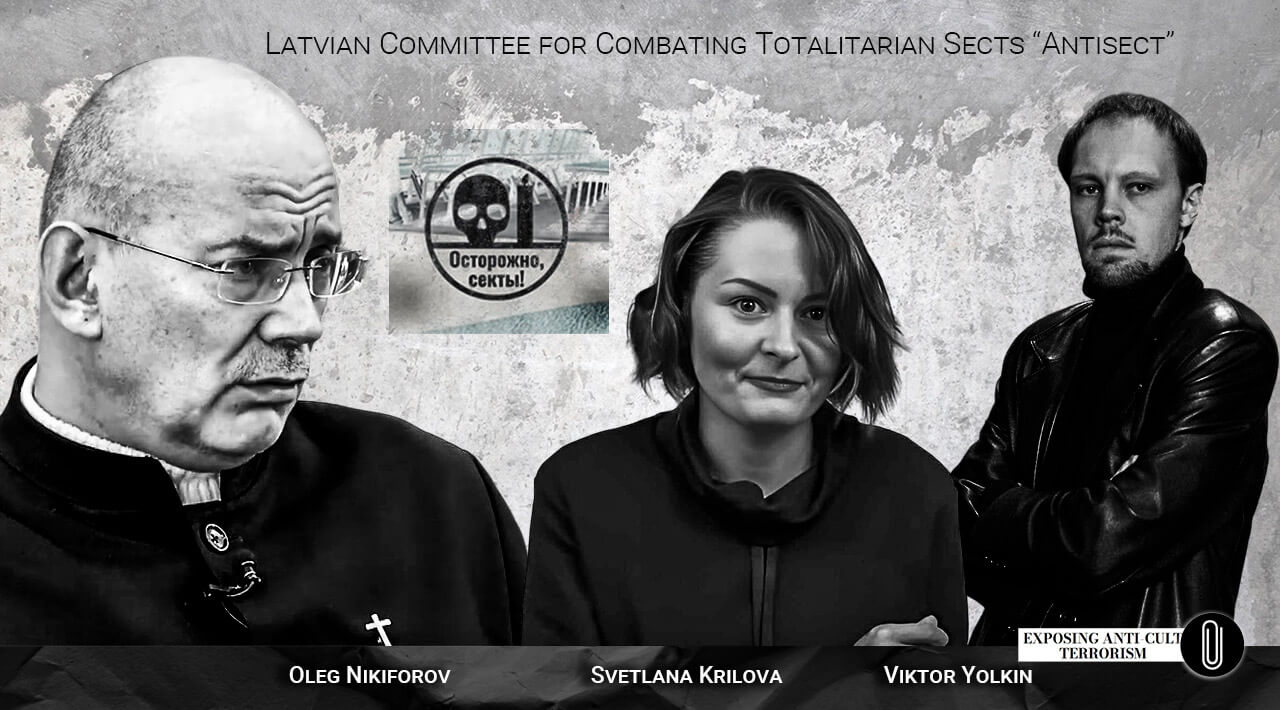
The most active fighters against sects and cults in Latvia were Oleg Nikiforov, Viktor Yolkin, and Svetlana Krilova. All of them were members of the radical party “Latvian Russian Union” 4 led by the well-known pro-Russian propagandist Andrejs Mamikins (Andrey Mamykin). Currently, Mamikins is internationally wanted for justifying crimes against humanity committed by Russia in Ukraine and is evading justice, hiding in Russia. There, he keeps actively engaging in media activities, including those aimed against Latvia’s interests. He has his own channel on YouTube 5. More detailed information about him may be found in our previous article.

In the fall of 2006, the year of RACIRS establishment, an article titled “Slaves – Not Us?” 6 was published on the website of the Latvian Russian Union. A workshop on restricting the activities of totalitarian sects was held in the conference hall of the Iceland Hotel in Riga. It was organized and conducted by Oleg Nikiforov and Viktor Yolkin. Representatives of all Latvian political parties were invited to the event, but few responded to the invitation. It was ambitious, to say the least.
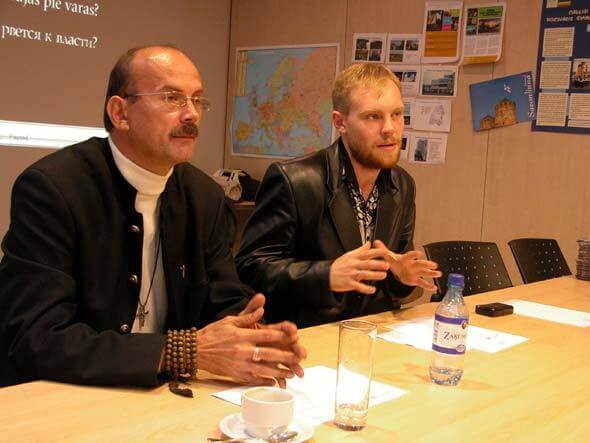
You should pay attention to the words Viktor Yolkin said at the workshop so as to discern the familiar features of anticult propaganda with RACIRS’s noisome undertone:
“First, it is necessary to introduce the concept of ‘totalitarian sect’ into our legislation. In the law on medical practice, hypnosis, trance techniques and similar things must be equated with the tools of a psychiatrist and a psychotherapist. In other words, just like medications, these techniques should be recognized as a doctor’s tools, with all the corresponding restrictions. An interdepartmental commission of experts should be created because some sects and cults are registered as public organizations. In the law on public organizations, control over their goals and objectives must be strengthened. We urge all politicians to publicly state their attitudes and intentions. After being in totalitarian sects, people undergo dangerous changes in their psyche.” 6
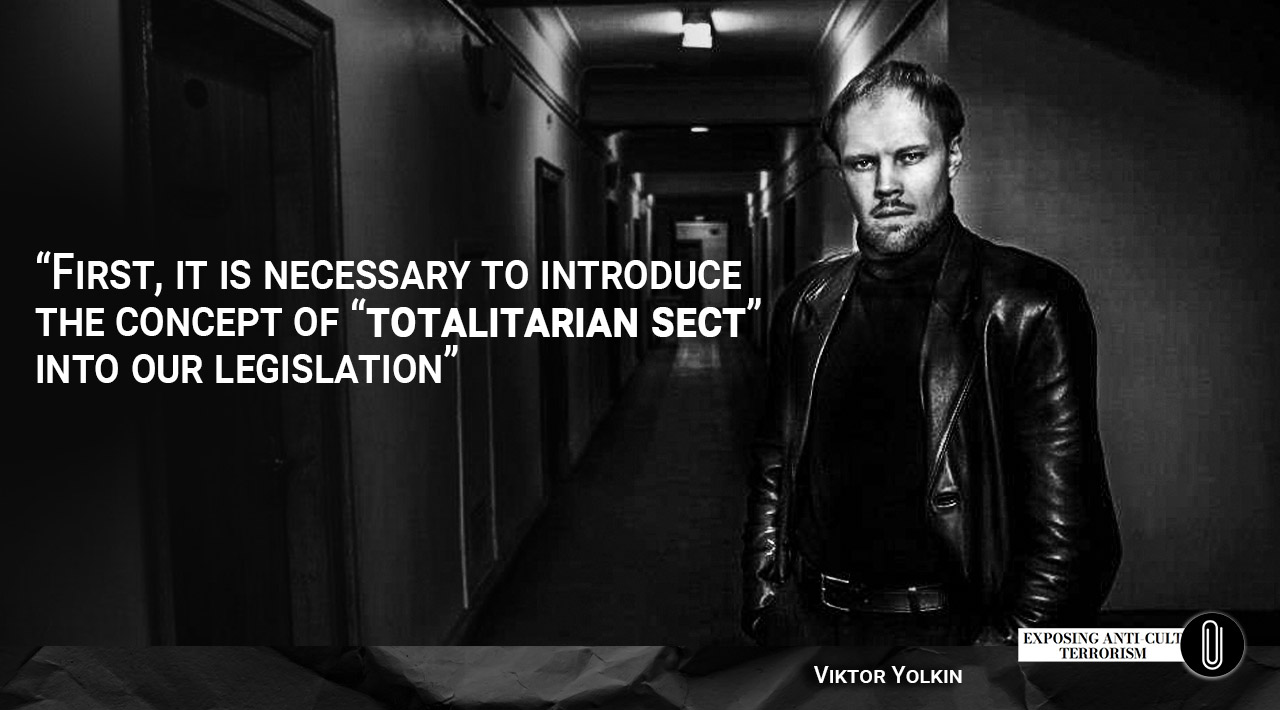
It is intriguing whether it’s his personal opinion that the first thing necessary is to introduce the concept of “totalitarian sect” into Latvian legislation, or is it a command from “the top”? Yolkin was definitely speaking from notes received from his Russian supervisors as their style is so clearly read. Here we see Dvorkin’s term “totalitarian sect,” an attempt to establish themselves as legislative authorities, and an invitation to dialogue with active politicians, which obviously aims to build convenient manipulative schemes for future interactions.
There were still twelve years to go until the FECRIS conference in Riga mentioned in the first article, but the firm commitment of Latvian activists to follow directives from “the top” was already clearly visible.
What prompted such activity? We asked ourselves this question until we discovered an article by Ervīns Jākabsons, titled “Beware — Antisectarians!” 7 written in Latvian. There, the author highlights the establishment of the anticult movement in Latvia, which centered around the key figures we mentioned above. Let’s cite a few excerpts from his article, as its content successfully complements our investigation, even though the author himself may not be fully aware of the destructive activities inherent in anticult terrorism.

The Russian version of the TVNET news portal started publishing a series of articles “Beware, sects!”. This material is also being translated and reprinted by the Latvian TVNET. We wouldn’t have paid special attention to this project… if it hadn’t involved a rather odious non-governmental organization “Antisect”, previously known as the Latvian Committee for Combating the Totalitarian Sects (L.C.C.T.S.). Since one of the “services” offered on the Antisect website is “expert examination of the social welfare of religious organizations” in accordance with criteria known to “antisectarians” themselves…
Let’s stop and note that at this stage Antisect already has an opportunity to carry out some religious expert examination. What it means isn’t entirely clear. We can assume that they undertook the same judgment functions as those of RACIRS: to determine who is called a sectarian or a cultist and who is not.
So what is the mysterious Antisect organization? Its origins can be traced back to October 1995, when a group of activists from the Russian Youth Club decided to challenge The New Generation, a rapidly developing, mostly Russian-speaking community. According to the Antisect website, in those years they allegedly managed to dissuade about fifteen people from participating in that community. Starting from 1996, “antisectarians” regularly picketed the Riga Sports Arena when The New Generation’s annual conferences were held there…
In the meantime, let’s note: activists of the Russian Youth Club started their activities in 1995; FECRIS was established in 1994, and Alexander Dvorkin founded his Center in the name of Irenaeus of Lyon in 1993 8.
“In 2007, a legally independent association was established, titled the Committee for Combating the Totalitarian Sects ‘Antisect’, which, at the request and without invitation, offers to ‘advise’ national and municipal entities, educational and healthcare institutions, law-enforcement agencies and mass media on ‘sect and cult issues’.
The association’s officially declared goal of fighting destructive cults and sects would not be reprehensible if it really fought against dangerous sects and cults. However, although Antisect promotes itself as a professional organization, it is totally unable to distinguish destructive cults from internationally recognized Christian movements and communities whose activities are harmless, and which are yet less widespread in Latvia. ‘Antisectarian’ articles and interviews mix Krishna worshippers and Scientologists, the White Brotherhood and the Durga Temple, Jehovah’s Witnesses and Mormons, along with quite traditional Christian communities. In this regard, a question arises: are ‘antisectarians’ unable to determine what a sect is?”
A mixture of heterogeneous and chaotic statements in publications is a recognizable style of RACIRS’ propaganda. We have examined dozens of articles of this kind based on undocumented accusations and outright disinformation. Ervīns Jākabsons also pointed this out because such a slanderous muddle may well evoke outrage in a literate reader.

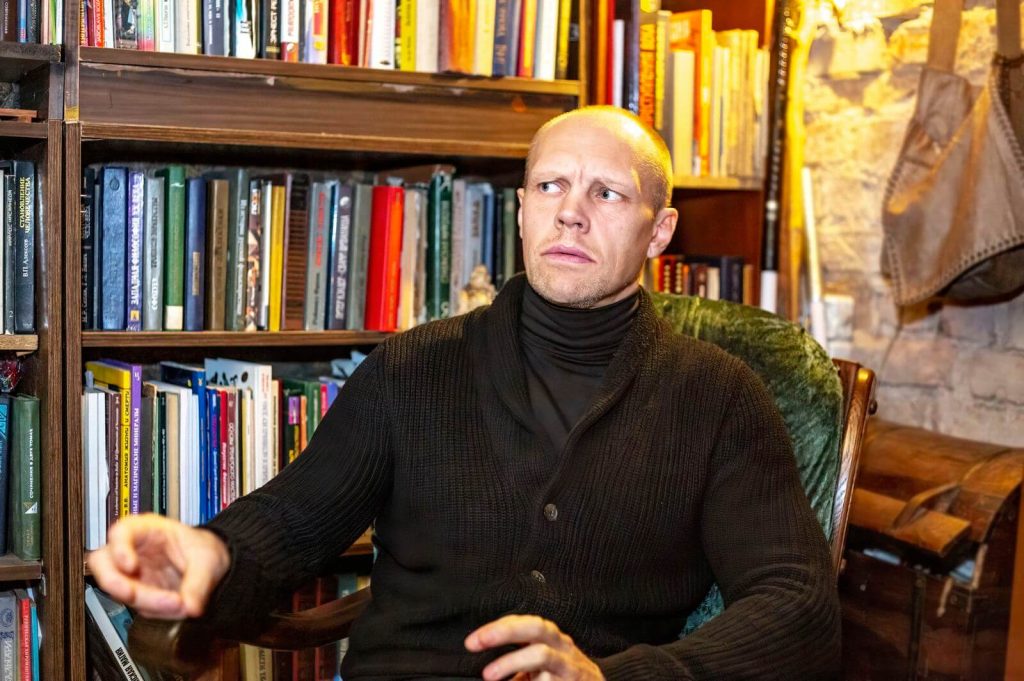
…It is precisely the ambiguity in the definition of sects that creates chaos in all the Antisect’s activities where Eastern religions, New Age and pseudo-Christian groups are placed in the same bag with Christian communities. Such a perspective is probably due to the fact that Antisect employees include only ethnic Russians, while Russians consider themselves “Orthodox Christian people” even if they do not practice faith in everyday life, so they regard everyone else as sectarians. In Latvia, Lutherans and Catholics are not called sectarians, but articles of the “Beware, sects!” series even mention rather ancient branches of Christianity such as Seventh-Day Adventists and the Salvation Army. I believe that Antisect activists subconsciously perceive Baptists, Methodists, Adventists and Reformers as sectarians, too…
It’s like experiencing a deja vu. The “Orthodox God-chosenness” was covered in detail in the article “Nazi Germany and Modern Russia.”
However, the main object of Antisect’s dislike are Charismatic and Pentecostal communities. Articles by TVNET journalist Viktorija Puškele 9, who is involved in the project “Beware, sects!”, reveal a complete misunderstanding not only of the forms of teaching and worship of Pentecostal and Charismatic communities, but also of Evangelical Christianity as such. At church services which the journalist secretly attends with a hidden camera in her pocket, everything shocks her: praise, worship, voice prayers, and donations collection, not to mention specific things such as speaking in various languages or cases of exorcism. While reading Puškele’s articles, you don’t know whether to cry or to laugh. One could expect that, before writing defamatory articles, a journalist of a serious news portal, which TVNET considers itself to be, would professionally prepare: learn more about the origins of a given Christian denomination, its history, form of teaching and worship. Unfortunately, Puškele’s publications manifest blatant unprofessionalism and lack of insight into the topic she writes about.
Again, deja vu! Just recall the scandalous Czech anticultist Kristina Ciroková and the Ukrainian doghunter (animal killer) Iryna Kremenovska also involved in filthy investigative journalism and having Russian supervisors (we will definitely talk about this later). It turns out their “triplet” lives in Latvia — the same unscrupulous trickster and provocateur who undeservedly bears the title of journalist and is ready to creep into someone’s underwear with a hidden camera for the sake of a hot story.
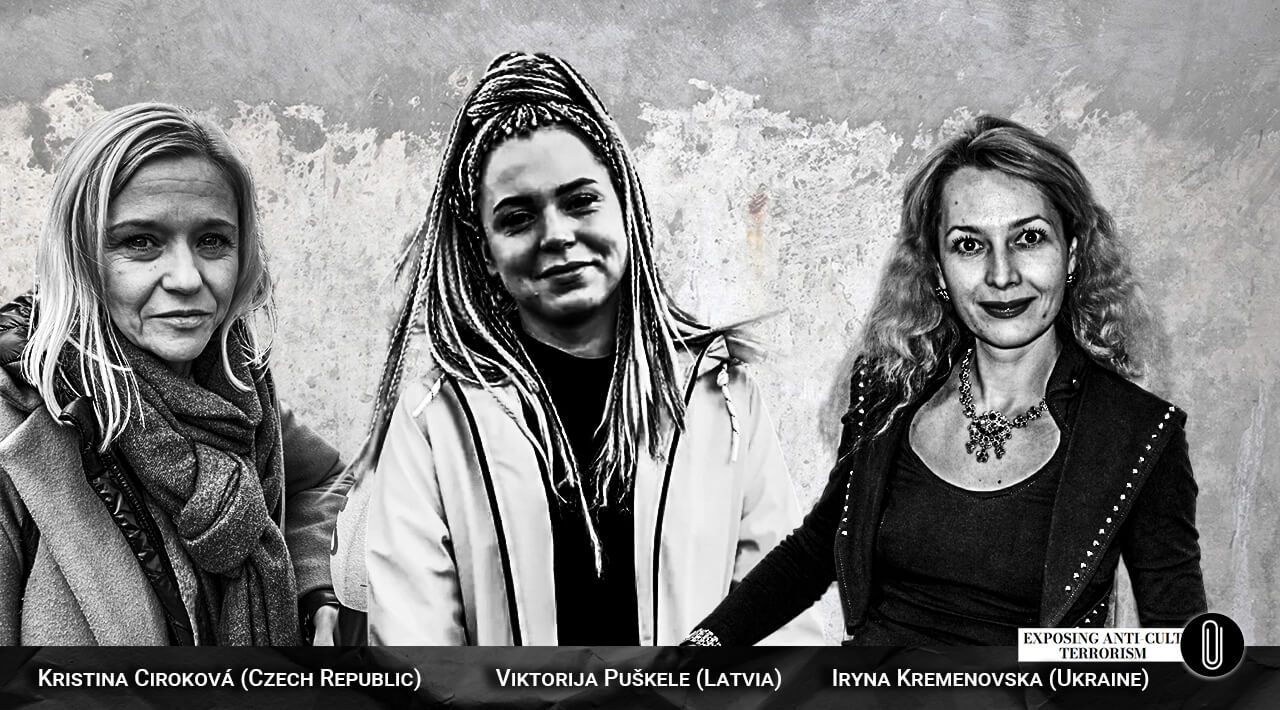
Her name is Viktorija Puškele.
“God, forgive this woman, for she doesn’t know what she’s doing!” — Ervīns Jākabsons appealed at some point in his narration.
You can only admire the young journalist’s ability to describe church services in such a way that even a knowledgeable person feels as if at a meeting of a mysterious cult, although the community the journalist is writing about is familiar to you and you know for sure that nothing of that kind is happening there. Perhaps, her opinion is due to ignorance of journalistic practice and the internal worship in Evangelical churches, but the Antisect experts may have well prompted her that all the communities she visits are dangerous totalitarian sects. That is why Puškele goes to church services as if to an enemy’s territory and specifically looks for something suspicious. If readers cannot be intimidated with “hypnosis sessions” and exorcism, she claims they will be manipulated by means of “psychological techniques” during “sectarian” services. She doesn’t clarify however what constitutes manipulation by means of psychological techniques because then everyone would have to admit that the advertising industry, politicians, and Antisect itself employ similar “techniques” in their anti-advertising sect.
Here are a few examples of how people are afraid. Puškele writes the following about a service in a fairly Christian community: “Representatives of the spiritual center may be seen in many parts of the hall. [..] Some of them have orange shirts on their backs. They repeatedly photograph the audience, sometimes move between the rows of listeners, and echo the preacher who during common prayers… starts talking in incomprehensible languages.” Pretty scary, isn’t it? Sectarians in uniforms take pictures of you, control what is happening in the hall, and speak incomprehensible languages. Basically, those are parish ministers whose job is to greet visitors, help them find a seat, assist pastors during intercession, and take care of order and safety in the hall. No photography usually takes place, so it can be assumed that Puškele attended a service that was photographed for the community needs or for their website. Yet, the journalist may have confused photography with video recording that is done for people who do not attend the church service, but watch its record.
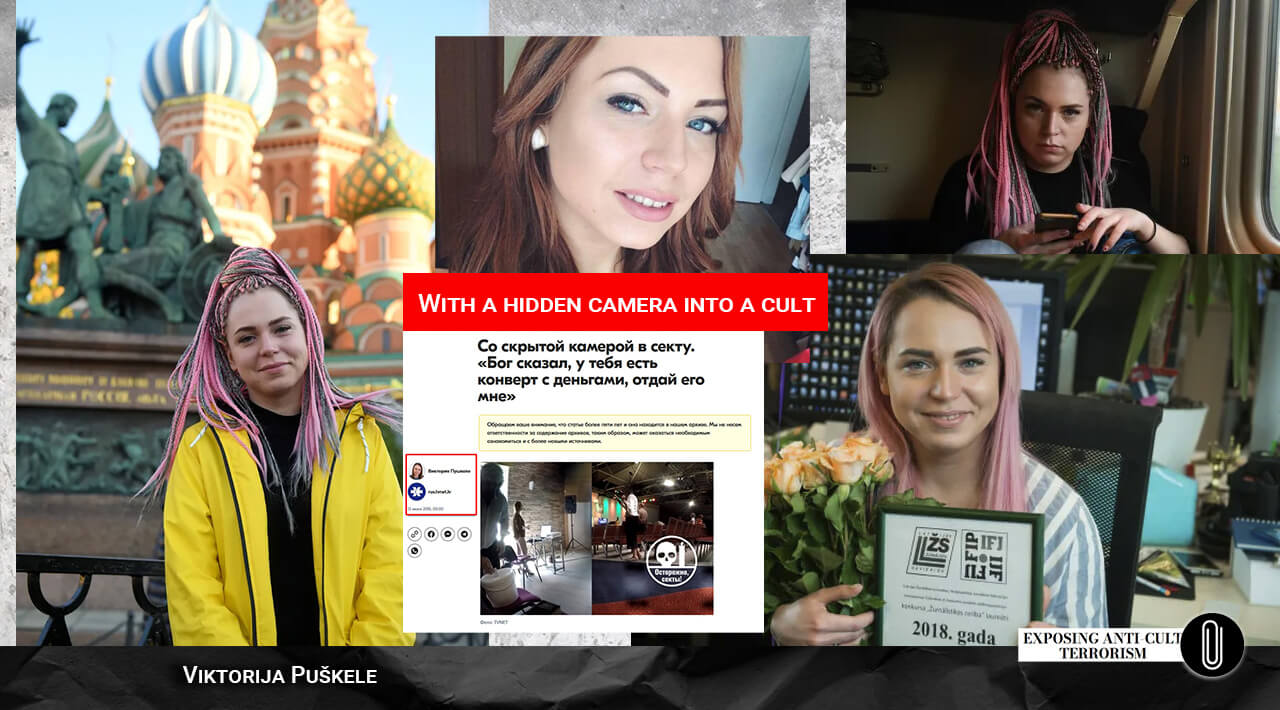
Other techniques are also used to intimidate readers. For example, Puškele particularly focuses on an idea that some activists of the congregations she describes “as a rule, have a dubious or even criminal background.” Indeed, Christian communities include former criminals whose lives have radically changed thanks to Christ. Some of them are church ministers and even pastors… However, the context of Puškele’s writings suggests that “former criminals” deliberately create “criminal sects and cults” in order to manipulate people and extort money from them…
Anticultism is really a vile and shameless occupation. After all, what’s going on? True provocateurs who evoke fear, irritation and other negative emotions in people, slander people and invent various criminal schemes with their sick imagination, regarding others only as enemies, or who merely execute a paid order, walk free with impunity, trampling on the dignity of innocent believers. The more we investigate the phenomenon of anticultism and its carriers, the more often we come to the conclusion that provocateurs lack conscience and have certain mental abnormalities.
Further, Ervīns Jākabsons is forced to justify himself. Although before whom, and why?
The statement by Antisect representatives that many Christian communities do everything only “with one major goal — to wring as much money out of their followers as possible” is a deliberate lie. At least in the Latvian context, this is certainly not the case.
Now, Ervīns Jākabsons finally gets to the very essence:
… One might think this is just a group of ardent Orthodox Christian fundamentalists who consider all other denominations to be sects and react accordingly. However, that’s not the case. It is time to expose the true face and political background of the Antisect association. In Russia, as you know, Orthodoxy has always been used for political purposes. Latvian “antisectarians” is not just an NGO that cares about society’s “mental health”, but quite a concrete political project backed by the Russian radical party — the Latvian Russian Union. One of Antisect leaders, Viktor Yolkin, was previously an active member of the party “For Human Rights in United Latvia”, and now he’s a member of the board of the Latvian Russian Union. Other Antisect activists are also associated with this party. These are the same people who advocate the immediate release of Alexander Gaponenko imprisoned for undermining the sovereignty of our country, defend the status of Russian as a national language in Latvia, and promise to defend the right of Russian schoolchildren to study in Russian.
Undermining a country’s sovereignty and destabilizing society represent the main agenda of anticultism. It turns out that the same things happened in the Baltic states and probably keep happening to this day.
The leaders of Antisect — Oleg Nikiforov 10, Viktor Yolkin 11 and Svetlana Krilova 12 — are also supporters of the radical party “Latvian Russian Union.”
You may wonder: why is it so important for a political project to position itself as a fighter against “sects”? Because by participating in evangelical communities, Russian-speaking believers become more westernized, more tolerant of other faiths and, ultimately, more loyal to Latvia. Consequently, radical Russian politicians no longer have an ability to control those people’s worldview. The significance of a single “national religion” is also clearly understood in Russia where the Orthodox Church is used as a weapon to combat “foreign ideological influence,” calling individual denominations extremist and subjecting them to confiscation of property, searches, humiliation, and hatred from society. A similar idea is being instilled in the consciousness of Russian-speaking Latvians that Orthodoxy is the only form of Christianity acceptable to Russians, whereas all other communities, as well as many NGOs, are “American sects.” This might not actually apply to Catholics and Lutherans, but these are also “foreign faiths” that a true Russian believer is unwilling to attend.
Propaganda about the “penetration by American sects” in Latvia follows the same scenario as the events in Ukraine. Let’s recall how back in 2014 Alexander Dvorkin accused the Ukrainian government of the widespread influence of mythical American cults that allegedly manipulated people’s minds. The same RACIRS’ rhetoric is used everywhere. Unfortunately, 10 years later, Ukraine was hit by an absolutely senseless full-scale war, which became the outcome of increased ideological conditioning of the Russian population’s consciousness.
…The Antisect association strove to ensure establishment of a government interdepartmental commission that would oversee all religious organizations, personal development groups, and direct sales companies. Essentially, this implies total government control over religious organizations and other NGOs.
This level of control is already maintained in Russia. Needless to say, Antisect offers its employees as experts for the supervisory commission in Latvia. “Professionals” of this association would be entitled to “identify strict indications by which sects and cults can be distinguished from other types of organizations, and would be able to assess which types of activities are beneficial to members of a cult or a sect and society, and which are dangerous.” As soon as this is done, the Antisect promises to introduce “changes in legislation that would eliminate any slightest opportunity for harmful sects and cults to operate in society, while those guilty of violating the rules would be severely punished.” In fact, the association and the Russian politicians behind it offer Latvia a model of “foreign sects” that has been tested in Russia and Belarus, including demonization and persecution of evangelical communities. This would make it possible to hold Latvian Russian-speaking people in ideological slavery of the so-called “Russian world.”
The question is though, why does the Latvian editorial board of TVNET 13 support the project “Beware, sects!”? …
Facts indicate that behind the “noble” goals and the cover organization, there is a destructive entity aimed at overseeing the processes in the country and preventing any religious or non-governmental organization from getting out of control… Why is the Antisect association dangerous for the Latvian state? Because it stigmatizes as sects the organizations and individuals whose activities have no signs of sectarianism. Because congregations, public organizations and individuals acting contrary to the interests of this association and the Russian radicals behind it are unreasonably declared sects and cults. The purpose of this lie is to defame those who oppose the imperial ideology of “one fatherland, one tsar, and one faith” in the eyes of the public.
In whose interests is this lie being spread? The Antisect website says that since 2017, the association has also been working in Russia where their “experts” are regularly invited to participate in broadcasts on Russian TV channels controlled by the Kremlin. The association’s website in Russia is also much larger and more detailed than in Latvia. Hence a question arises: who is sponsoring it all? Maybe, Russia? If so, then from what sources? From various programs supporting compatriots, such as the “Russian World” or similar organizations? But in this case, the Antisect association would have to be called an agent of Russian influence. Let’s remember that Latvia is our country. It’s our country, our nation, and our land. Let’s stand up for our country, our people, our language, the freedom of belief and the freedom of thought. Let’s not fall into the Kremlin’s propaganda net so easily, and let’s not echo its agents! Let’s be vigilant: the goal of the Kremlin’s “antisectarians” is not to unite, but to divide!
That’s right, dear Ervins Jākabsons, the international antisectarian or anticult movement is actually an agent of Russian influence today, and once again, we get convinced of this by the example of the small Baltic country, Latvia. Amazingly, the person who wrote the article cited above made quite correct conclusions on his own.
Summing up, let’s add a little more spice to the topic. For you to know, there is a Russian Orthodox Church (ROC) of the Moscow Patriarchate in Latvia! Again, we arrive at an analogy with Ukraine where a metropolitan bishop Filaret, when establishing the Kyiv Patriarchate, admitted his contacts with the KGB: in the past, he had been recruited and had an agent name Antonov.
In Latvia, where stability is so far maintained, but the active stage of fight of the clergy and laity for the church purification still continues, the ROC diocese is headed by Aleksandrs Kudrjašovs (Alexander Kudryashov) 14 who was recruited by the Soviet KGB 40 years ago and used to have an agent name Reader. Now he is the metropolitan bishop Alexander 15.
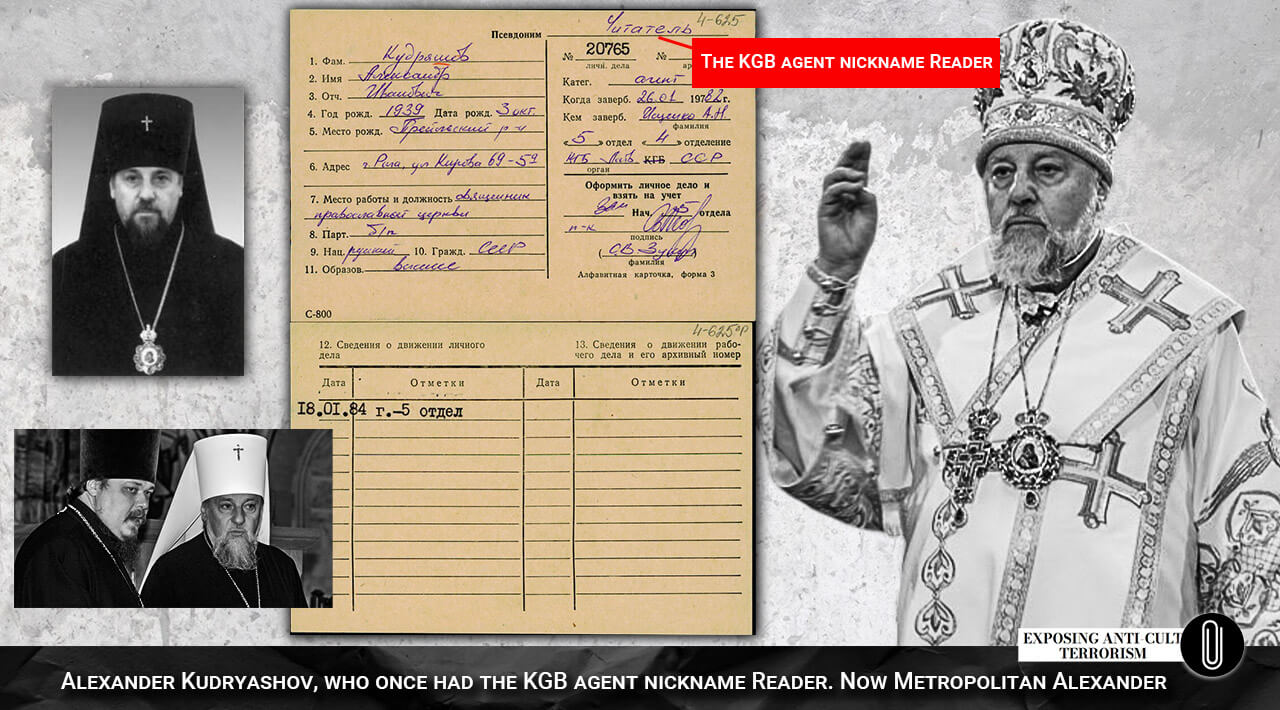
As we can see from the above analytical overview, Baltic countries are also exposed to aggressive influence of anticult organizations that have a pronounced Russian trail. We do not condemn anyone. The international tribunal will deal with sentencing, while we only investigate the anticult connections.
Hopefully, peace and stability will be preserved in the Baltic region. But for that, local competent authorities should take the precaution of paying attention to the information provided herein.
In the meantime, it is worth recalling PACE Resolution 2567 (2024), “Propaganda and Freedom of Information in Europe,” dated October 1, 2024 16, the section 6 of which says:
“The Assembly acknowledges that for authoritarian regimes, such as the Russian Federation, propaganda is an inalienable part of their war on democracy.”
What will Latvia choose? It’s up to this nation itself.
Sources:
1. http://www.patriarchia.ru/
2. https://www.fecris.org/
3. http://web.archive.org/web/20201130171313/https://www.fecris.org/members/
4. https://rusojuz.lv/
5. https://www.youtube.com/@mamikinstv9131
6. https://rusojuz.lv/raby-ne-my/ https://web.archive.org/web/20190526021953/http://rusojuz.lv/ru/archive/2006/16114-/
7. https://www.kristuspasaulei.lv/uzmanibu-antisektanti/
8. https://iriney.ru
9. https://www.facebook.com/Zurnalistikasceribas/posts/viktorija-pu%C5%A1kele-rustvnet-%C5%BEurn%C4%81liste-ir-%C5%A1ogad-nomin%C4%93ta-latvijas-%C5%BEurn%C4%81listu-asoc/177928756164294/?locale=ar_AR
10. https://www.russkije.lv/lv/lib/read/o-nikiforov.html
11. https://www.facebook.com/v.yolkin/?locale=ru_RU
12. https://www.krilova.org/
13. https://www.tvnet.lv/
14. https://en.wikipedia.org/wiki/Aleksandrs_Kudrja%C5%A1ovs
15. https://www.bbc.com/russian/features-46653022
16. https://pace.coe.int/en/files/33808/html?__cf_chl_tk=ua336qpX7aGCD9.vCIq.0yTTXMS8znkvpCCto2Q.pLg-1729273787-1.0.1.1-GmOkYrU53ap2n7tOxAXZqSpDTFWPaXjo04wvN_NWAVY



